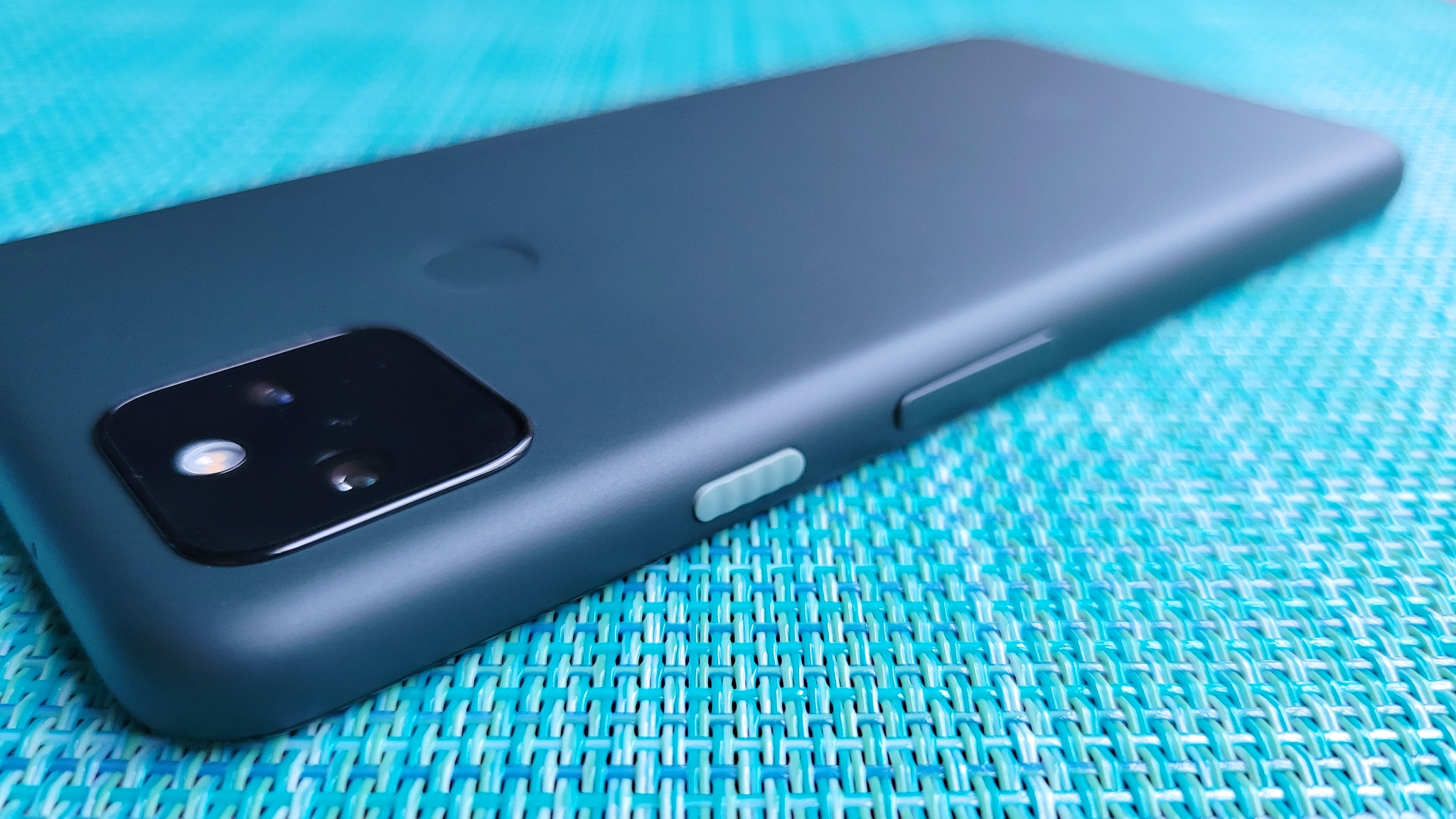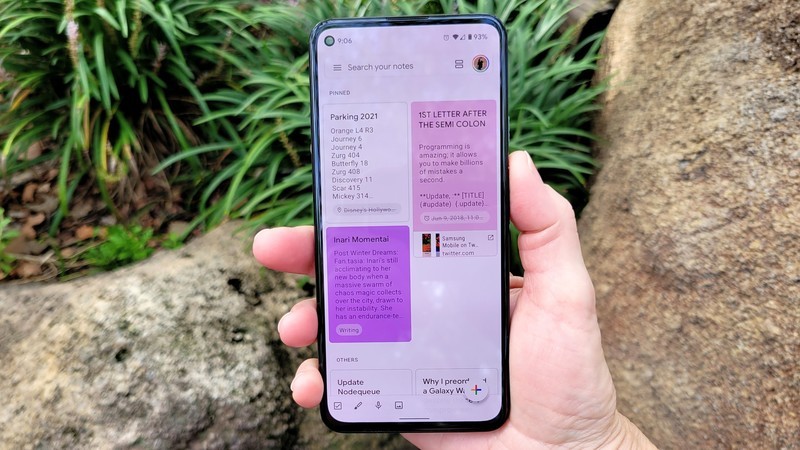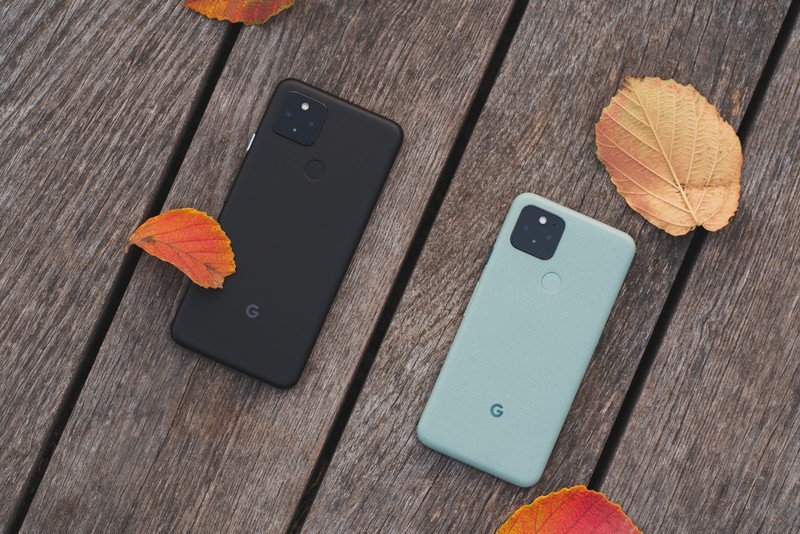Why does the Pixel 5a exist?

The Google Pixel 5a is finally here, and 2021's only mid-tier Pixel model is just a little bit different compared to last year's Pixel 4a. It's got a much bigger screen, a gigantic battery, and important table-stakes features like water resistance that were missing from the 4a.
But a more important question than what the Pixel 5a is — it's pretty much just an upgraded Pixel 4a 5G, after all — is why it exists.
Visually, this model clearly belongs to the previous generation of Pixels — the 2020 generation, as opposed to the newfangled Pixel 6 with its Google Tensor chip, high-end ambitions, and chunky camera visor.
The Pixel 5a looks set to fill that all-important "cheap 5G phone" role for Google — so perhaps it makes sense that it's channeling that older Pixel 4a 5G style. It is largely the same phone, after all. The 5a uses the same Snapdragon 765G processor and a very similar plain-looking design. Same 6GB of RAM and 128GB of storage. Same rear fingerprint. In fact, a look down the spec sheet reveals very few internal hardware changes for what is a notably cheaper phone than the 4a 5G.
There are three key additions in the Pixel 5a that make it more competitive in 2021 — as well as one minor downgrade that we'll get to later. First up: water resistance — with an IP67 rating making this the first A-series Pixel where you won't need to worry about getting it wet. That's great and long overdue.
Long overdue table-stakes features finally make their way to an A-series Pixel.
There's also a significantly bigger battery — larger than we've seen in any previous Pixel at 4680mAh. And since the display is still 60Hz at 1080p, and we're still running that 765 chipset, it's no surprise to see phenomenal battery life out of the Pixel. Android Central's Ara Wagoner got eleven hours of screen-on time across just under two days of use out of her Pixel 5a review unit — that's pretty spectacular longevity. (Just like the 4a 5G, however, you're limited to the Pixel-standard 18W wired charging, with no wireless option.)
The 5a also boasts the largest screen we've yet seen in an A-series Pixel at 6.34 inches diagonally, though this change in size compared to the 4a 5G is mostly just a change in aspect ratio, as the Pixel 5a uses a 20:9 panel.
Be an expert in 5 minutes
Get the latest news from Android Central, your trusted companion in the world of Android
As for what you don't get: Well, mmWave isn't supported in the Pixel 5a — only sub-6GHz 5G. That's somewhat understandable considering the price point, but I guess potentially disappointing if you were planning on using your 5a to stand in one place and run speed tests. It's also a little bit weird considering this phone will only be sold in the US and Japan, two of the biggest mmWave markets.

Everything else about the Pixel 5a is very much a known quantity. It's got the same cameras from the Pixel 5 and 4a 5G, boasting the same portrait lighting and video stabilization features as those phones. These cameras still hold up really well, especially in a phone that's selling for $450, with plenty of color detail in darker scenes and that trademark Pixel color science. The main thing you're missing out on is telephoto, but that's pretty rare at this price point, and most people will probably find ultrawide more useful anyway.
The "Mostly Black" design is not much to look at, continuing the trend of painfully dull-looking mid-range Pixels. But at least this time around, Google has some colorful cases available to add a bit of flair. And the chassis itself is now a metal unibody with resin coating, similar to the Pixel 5. And if you squint, you can make out a hint of dark green in the 5a's chassis, making it a tiny bit less plain than its predecessors.
The Pixel 5a is undeniably boring, but it's the best mid-ranger Google fans could've hoped for.
So why does Google need a device like this in its loadout, and what does it mean for the rest of the Pixel lineup?
Well, the Pixel 5a is clearly a more competitive phone than the 4a 5G, and it makes sense as a replacement for that device, with key upgrades like water resistance and that giant battery. But this year, there's no miniature Pixel 5a; the only size option is the larger one. This might've led you to believe that the regular Pixel 5 will stick around as the smaller counterpart. Only thing is, Google is discontinuing the Pixel 5 in the U.S. — and over in Europe, where the Pixel 5 is on sale, the 5a won't be launching. Weirdly, though, the Pixel 4a will remain available in the U.S. (for now) — so we have this odd situation where both markets have different sets of mid-range Pixels available.
According to our sources, those regional restrictions are the result of the current global chip shortages, specifically around the phone's Snapdragon 765G chipset. In recent days, Google has basically confirmed this, telling TechRadar that "global supply chain challenges limit a larger regional roll out" for the 5a.
The Pixel line as a whole would make a lot more sense if Google could just replace the 4a 5G with the 5a everywhere and then offer the Pixel 5 as basically your small mid-range Pixel for 2021. Alas, all three phones are affected by the same shortage of Snapdragon 765Gs, and Google has clearly decided to funnel the remaining supplies into launching the Pixel 5a in the U.S. and Japan, as opposed to continuing older Pixel sales in those countries.

So we're coming to the end of a very messy release cycle of Pixel phones. It started with the Pixel 4a, a budget offering only available in a smaller size. Then we had the Pixel 4a 5G — a bigger mid-ranger that was a half-step upgrade from the 4a and only available with a larger screen. Then the Pixel 5, which was the highest-specced Pixel, but once again only available in a smaller size. And now we have the 5a, which is better than 4a 5G in most areas but not quite as premium as the Pixel 5 — and only available with a big screen.
Until the Pixel 6 arrives, the Google phone lineup will remain kind of a mess.
Individually, all these phones are great products — some of the best Android phones in their price brackets — but it's kind of a mess as a product line. The Pixel portfolio of 2020/21 is a far cry from the situation a couple of years ago: In 2019, buyers could simply choose the cheap Pixel or the expensive Pixel, and from there the big phone or the small one.
What's also baffling is the arrival of this new Pixel phone just weeks before a major new version of Android drops. This means the 5a as it's being reviewed today will be quite a different experience once it gets Android 12, with the stable version likely to land around the second week of September. That's less than three weeks from the Pixel 5a's street date of August 26.
The Pixel 4a 5G was and still is a fine phone. And so it stands to reason that an upgraded version that's $50 cheaper is also definitely worth your attention. Pixel 5a owners are getting a great core Google phone experience with handy on-device AI tricks, along with a camera system that still holds up really well for a $450 handset. It exists because Google needs an updated cheap 5G phone for 2021, and it does that job pretty well, especially in the US market.
Let's just hope that next year, when the Pixel 6a arrives, the Pixel product line itself will be just a little bit more coherent.

Alex was with Android Central for over a decade, producing written and video content for the site, and served as global Executive Editor from 2016 to 2022.

